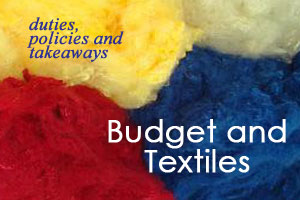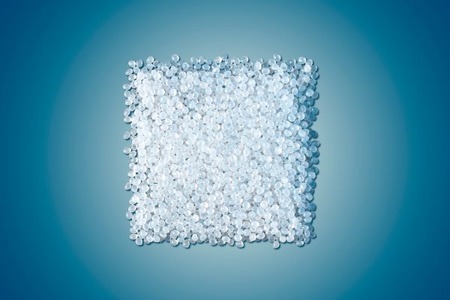
What lies in the budget for the textile industry?
YarnsandFibers News Bureau 2016-03-01 12:47:00 – MumbaiWhile there was no fresh proposition in the Union Budget 2016 for the textile industry, which was presented to the Parliament on 29 February, the income growth expected to steam up the India economy will have favourable impact on overall demand, and for textiles in particular.
In its pre-budget memorandum, CITI an industry body had pitched for lowering excise duty on man-made fibre and filament from 12% to 6% which would have reduced the tax burden on MMF and reduce cost to the weaver. Changes in labour laws and better market access to major markets like the US and EU via trade pacts were the other two demands.
FICCI, another industry body had pointed out that the value chain in textile and apparel sector had differential tax treatment. These different rates created needless distortions. While excise duty on natural fibres like cotton, wool and flax is nil, man-made fibres and yarns attract duty as high as 12.5%. China, Pakistan, Sri Lanka, Indonesia and Thailand follow fibre neutral policy i.e. the duty on cotton/cotton yarn and MMF/MMF yarn textiles are imposed at the same level. It was therefore suggested by FICCI that excise duty on man-made fibres/yarns should be reduced to 8%. This measure would have further helped the downstream industry especially weavers.
Ironically, the union budget has proposed changes in sharp contrast to the demand. Readymade garments of high quality will be dearer, manufacturing cost will go up, recycling PET will be unviable, and importing MMF and specific fabric will be cheaper.
CHANGES IN EXCISE DUTY
However, the budget for 2016-17, proposed to change the excise duty on branded readymade garments and made up articles of textiles with a retail sale price of INR1,000 and above from ‘Nil without input tax credit or 6%/12.5% with input tax credit’ to ‘2% without input tax credit or 12.5% with input tax credit’.
Tariff value for excise /CVD purposes on readymade garments and made up articles of textiles is changed from 30% of retail sale price to 60% of retail sale price.
Excise duty on PSF / PFY, manufactured from plastic scrap or plastic waste including waste PET bottles, is proposed to change from 2% without input tax credit or 6% with input tax credit to 2% without input tax credit or 12.5% with input tax credit.
CHANGES IN CUSTOM DUTY
Basic customs duty on specified fibres and yarns has been reduced from 5% to 2.5%. Similarly, basic customs duty on import of specified fabrics [for manufacture of textile garments for export] of value equivalent to 1% of FOB value of exports in the preceding financial year is exempted subject to the specified conditions.
However, with the New Textile Policy on the anvil, the textile industry will have to wait for some more time to hear the ‘Make in India’ mantra of the Modi government.
Market Intelligence
Ask for free sample Report

experience
Customer Base
dedicated team
Countries Served Worldwide









